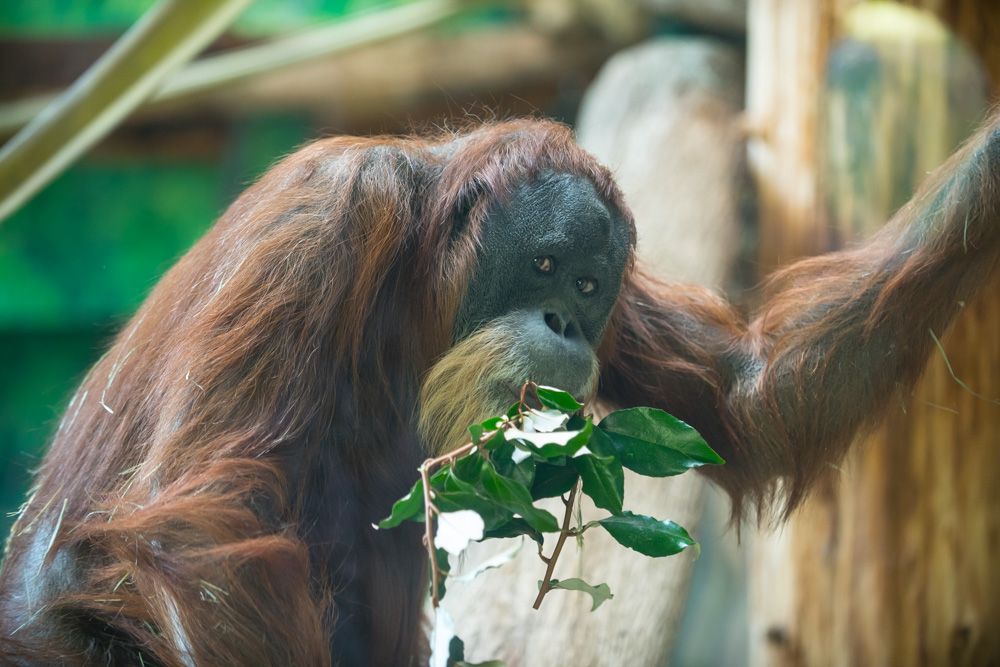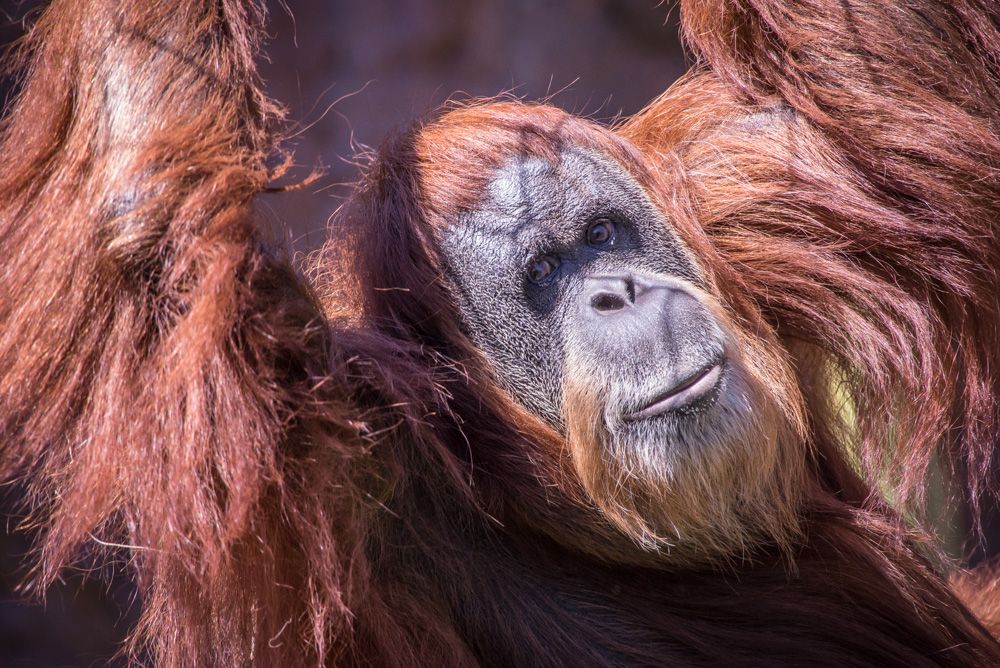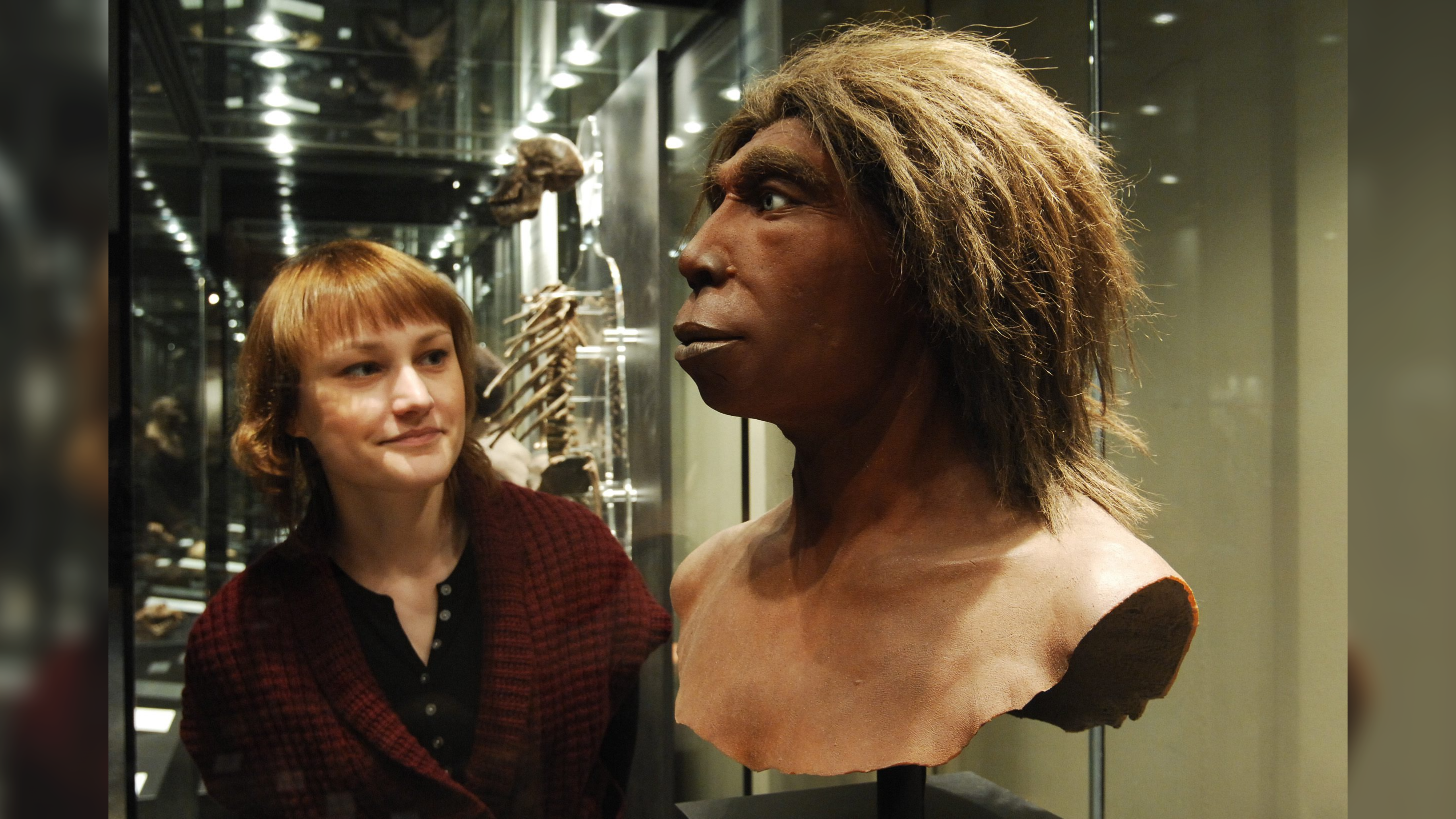Zookeepers mourn death of world's oldest orangutan
Her keepers say she "inspired generations."

Get the world’s most fascinating discoveries delivered straight to your inbox.
You are now subscribed
Your newsletter sign-up was successful
Want to add more newsletters?
Join the club
Get full access to premium articles, exclusive features and a growing list of member rewards.
The world's oldest known orangutan, a 61-year-old Sumatran female called Inji, has died at her home at the Oregon Zoo.
Although her exact birth date is unknown, Inji had been at the zoo since 1961 and was suspected to be a 1-year-old at the time, according to a statement from the zoo. She was brought to the U.S. through wild animal trade that was legal at the time.
"We knew she couldn't live forever, but this really hurts, and I know many visitors are grieving along with us," Bob Lee, who oversees animal welfare at the zoo, said in the statement. "Inji's ability to connect with people was incredible."
Related: In photos: Adorable orangutan shows off knot-tying skills
Throughout her long life, Inji remained active and spent most of her days interacting with visitors through the windows of her habitat. Staff and visitors would often bring colorful items to help keep her entertained.
"She seemed to study humans and enjoy watching them, especially children," Lee said in the statement.
The high level of interaction with visitors and the excellent care she received at the zoo allowed her to live long past the average age of her species. In the wild, the average life span for orangutans is only 30 to 40 years, according to National Geographic.
Get the world’s most fascinating discoveries delivered straight to your inbox.

Inji was also a mother to 33-year-old daughter Markisa, a resident at Como Park Zoo & Conservatory in Minnesota, who she conceived with mate Harry at Oregon Zoo. She even became a grandmother to Markisa's own offspring, something very few orangutans will ever live long enough to achieve.
However, age did eventually catch up to Inji and her health had deteriorated drastically over the last few weeks. She was moving stiffly, rarely left her nest box, and she was no longer interested in even her favorite foods, according to the statement. Eventually, she stopped responding to pain medication and the zoo medical staff decided to humanely euthanize her on Saturday (Jan. 9).
Threatened in the wild
All three species of orangutans — Bornean orangutans (Pongo pygmaeus), Tapanuli orangutans (Pongo tapanuliensis) and Sumatran orangutans (Pongo abelii), of which Inji belonged — are listed as critically endangered, according to the IUCN Red List.
There are currently only 15,000 Sumatran orangutans, like Inji, left in the wild; the most endangered of all great apes, the Tapanuli orangutans are native to Sumatra as well, with just 800 individuals left in the wild.

"We're thankful that we were able to give Inji a good home, but it's heartbreaking to think about the circumstances that brought her here," Asaba Mukobi, Oregon zoo's senior primate keeper, said in the statement. "Even though the wild animal trade is illegal now, it still exists. It is considered a major threat to orangutans' survival, along with human encroachment and habitat loss from palm oil plantations. Orangutans are at the brink of extinction."
The Oregon zoo partners with the Borneo Orangutan Survival Foundation to send care staff to help ensure the successful wild release of orphaned orangutans, and to improve the lives of orphans that can't be released.
According to Mukobi, the connection between captive animals like Inji and visitors, is the key to saving wild populations.
"Building on that connection, we're trying to create awareness about what's happening to orangutans in their native lands and let people know how they can help," he said in the statement.
Originally published on Live Science.

Harry is a U.K.-based senior staff writer at Live Science. He studied marine biology at the University of Exeter before training to become a journalist. He covers a wide range of topics including space exploration, planetary science, space weather, climate change, animal behavior and paleontology. His recent work on the solar maximum won "best space submission" at the 2024 Aerospace Media Awards and was shortlisted in the "top scoop" category at the NCTJ Awards for Excellence in 2023. He also writes Live Science's weekly Earth from space series.
 Live Science Plus
Live Science Plus










